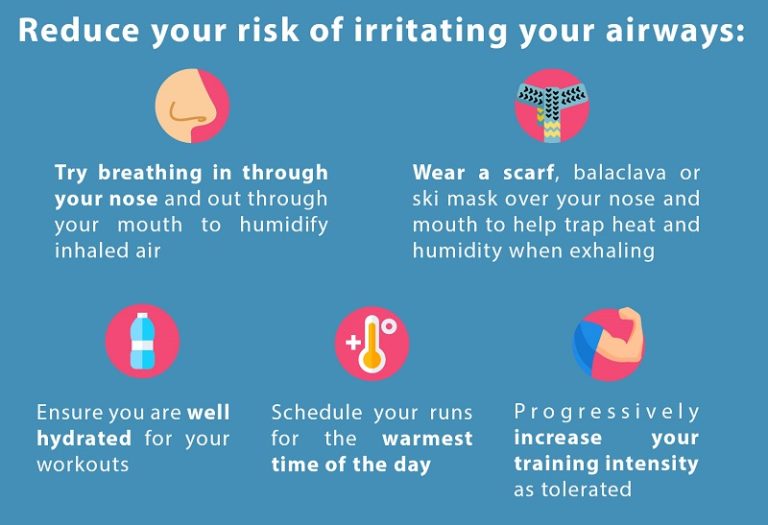Should You Run Everyday?
Running every day can be beneficial for your overall health, but it’s important to listen to your body’s needs. Overdoing it can lead to injuries and burnout.
Consistency is key in developing a running routine that works for you. Vary your pace and distance to prevent overuse injuries and keep things interesting. Remember to incorporate rest days to allow your body to recover and avoid excessive strain.
Ultimately, the decision to run every day should be based on your individual fitness level, goals, and physical well-being. Running can be a great way to stay active and improve cardiovascular health, but it’s crucial to find a balance that works for you.
Benefits Of Running Everyday
Running is a popular form of exercise known for its numerous health benefits. But what about running every day? While some caution against it, there are also compelling reasons to consider making running a daily habit. Let’s take a look at the benefits of running every day.
Improved Cardiovascular Health
Running daily can significantly enhance your cardiovascular health. It strengthens the heart, improves blood flow, and lowers the risk of heart disease. Regular running increases the efficiency of the cardiovascular system, aiding in better endurance and overall heart health.
Weight Management
Running every day can be an effective strategy for weight management. It boosts metabolism, helping to burn calories and shed excess pounds. The combination of consistent running and a balanced diet can contribute to maintaining a healthy weight and reducing the risk of obesity-related health issues.
Boosted Mood And Mental Health
Consistent running has a positive impact on mental well-being. It stimulates the release of endorphins, often referred to as “feel-good” hormones, which can alleviate stress, anxiety, and depression. Moreover, running daily can enhance cognitive function and promote a sense of overall mental clarity and well-being.

Credit: www.nike.com
Potential Risks Of Running Everyday
Overuse Injuries
- Repetitive stress on muscles can lead to strains and tendonitis.
- Fractures and stress fractures are common in overuse scenarios.
- Joint pain and cartilage damage may result from excessive running.
Decreased Immune Function
- High-intensity endurance running can weaken immune response.
- Increased cortisol levels can suppress the immune system.
- Susceptibility to infections may arise with daily exhaustive running.
Finding The Right Balance
Running everyday can be beneficial for your physical and mental health, but it’s important to find the right balance. Consider factors like your fitness level, goals, and overall well-being to determine if running everyday is right for you.
`considering Your Fitness Level`
`Assess your fitness level before committing to running daily to prevent injury or burnout.
`Regular runners may handle daily runs, while beginners should start with fewer days per week.
`Gradually increase your running frequency as your fitness level improves.
`Balancing intensity and rest days is crucial for overall well-being and sustainability.
`listening To Your Body`
`Listen to your body for signs of fatigue, pain, or overtraining.
`Soreness lasting more than a day or persistent discomfort should not be ignored.
`Adjust your running routine based on how your body responds to daily runs.
`Prioritize rest and recovery when feeling overly fatigued or experiencing any physical strain.

Credit: www.runnersworld.com
Alternatives To Running Everyday
When it comes to exercising, running every day may not be suitable for everyone. It’s essential to consider alternatives to running to prevent overuse injuries, maintain a balanced fitness regimen, and provide your body with proper recovery time. Here are some effective alternatives to incorporate into your routine:
Cross-training
Cross-training involves engaging in different types of workouts to complement your running routine. This approach helps to strengthen various muscle groups, improve cardiovascular fitness, and reduce the risk of overuse injuries. Some effective cross-training activities include:
- Swimming
- Cycling
- Strength training
- Yoga or Pilates
Rest Days
Rest days are crucial for allowing your body to recover and adapt to the physical stresses of running. Incorporating rest days into your training schedule helps prevent burnout, fatigue, and overtraining. On rest days, focus on gentle activities such as walking, stretching, or light yoga to promote active recovery while giving your muscles the chance to repair and grow.
Tips For Running Everyday
Running is a great form of exercise that offers numerous physical and mental benefits. But is it appropriate to run everyday? While some runners thrive on daily workouts, others may find it too demanding or even risky. If you’re considering running everyday, it’s important to take certain factors into account and follow some essential tips to ensure a safe and successful routine. In this article, we will explore some useful tips for running everyday and how you can incorporate them into your fitness journey.
Appropriate Warm-up And Cool-down
Before you embark on your daily run, it’s crucial to prioritize your warm-up and cool-down routines. These exercises help prepare your body for the running session and aids in the prevention of injuries. A proper warm-up increases your heart rate and gradually elevates your body temperature, making your muscles more flexible. Aim to include dynamic stretches such as leg swings or lunges, along with some light cardio activities like jumping jacks or a brisk walk.
Similarly, an effective cool-down is just as important to bring your heart rate back to normal and aid in muscle recovery. Focus on static stretching exercises such as hamstring stretches and quad stretches. A cool-down also helps reduce muscle soreness and stiffness, ensuring you’re ready for your next run.
Gradually Increasing Intensity
When establishing a daily running routine, it’s crucial to gradually increase the intensity of your runs. Pushing yourself too hard, too soon, can lead to burnout or injuries. To avoid this, start with shorter distances and slower paces, especially if you’re new to running. As your body adapts and becomes more comfortable, you can gradually increase both the distance and speed of your runs.
Incorporating a variety of workouts into your routine can also help prevent monotony and reduce the risk of overuse injuries. Consider including interval training or hill workouts to challenge yourself and improve your overall performance. Remember to listen to your body and modify your routine accordingly. If you experience any pain or discomfort, it’s essential to rest and seek medical advice if necessary.
By following these tips for running everyday, you can create a sustainable and beneficial routine that helps you achieve your fitness goals. Remember to warm-up and cool-down properly and gradually increase the intensity of your runs. Running can be a fantastic way to improve your cardiovascular health, build endurance, and reduce stress levels. Just ensure you approach it with the right mindset, take care of your body, and enjoy the journey!

Credit: www.youtube.com
Frequently Asked Questions Of Should You Run Everyday?
Is It Good To Run Everyday For Weight Loss?
Running everyday can be beneficial for weight loss as it helps burn calories and increase metabolism.
What Are The Benefits Of Running Daily?
Running daily can improve cardiovascular health, strengthen muscles, reduce stress, and boost mood and mental well-being.
How Often Should Beginners Run?
Beginners should start with 2-3 days of running per week, allowing for rest days in between to prevent injury and build endurance gradually.
Conclusion
Running every day has various physical and mental benefits, but it’s crucial to listen to your body and avoid overtraining. Incorporating rest days and cross-training can help prevent injuries and burnout. Ultimately, the decision to run daily should be based on individual health and fitness levels.
Balance is key.






